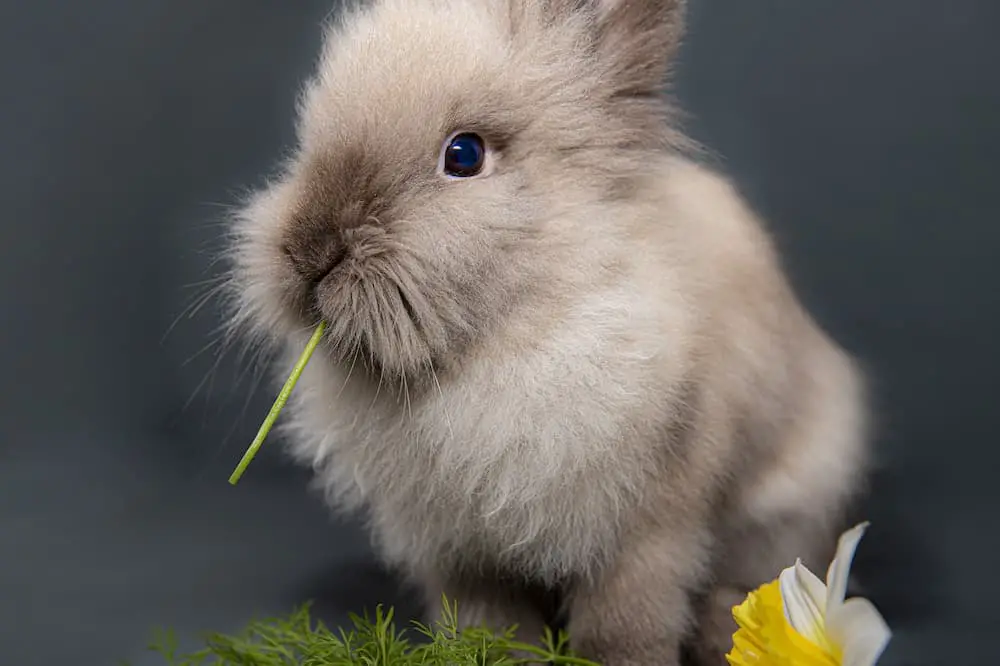Flax seeds have become increasingly popular in many people’s diets.
Flaxseeds have more recently emerged as a new “superfood,” but rather than being another fad diet that is only popular for a short time, flaxseeds have actually been eaten for many years due to their health benefits.
Some of the benefits for humans include lowering blood pressure, being a great source of plant-based protein, and containing tons of nutrients!
If you’ve been adding flaxseeds to your diet, you may be wondering if flaxseeds can be beneficial in your rabbit’s diet.
In short, yes, flaxseeds can be given to most rabbits to eat. In fact, lots of rabbits enjoy eating these types of seeds. They can also contribute to the overall well-being of your rabbit. Flax seeds, in particular, are a good addition to your rabbit’s diet.
Generally, a healthy diet for your rabbit consists of hay, fresh vegetables, along with some pellets.
Both you and your rabbit can enjoy the enormous health benefits of eating flax seeds and even share a snack.
However, just like any other types of seeds, flax seeds have a high-fat content and should only be given to your rabbit in moderation.
Let’s take a look at why flax seeds are so good, how often your rabbit should eat them, what form they should be eaten in, and how to safely store your flax seeds.
Why Are Flax Seeds Good For Rabbits?
While flax seeds are popular at the moment due to their “superfood” status, they have actually been around for centuries and have been eaten for just as long.
These tiny seeds can be a perfectly healthy snack! Each seed is packed full of nutrients, B vitamins, plant protein, fiber, and omega-3 and omega-6 fatty acids.
They have many protective qualities which can help regulate essential fatty acids, even in animals like rabbits.
Plus, with a pleasant nutty flavor that is very popular with rabbits, rabbits love to munch at their healthy flax seeds.
How Do Flax Seeds Help Your Rabbit?
As they’re so full of many essential nutrients, flax seeds are amazing for the overall health of your rabbit.
To restore any imbalance of omega-6 and omega-3 essential fatty acids in your rabbit’s diet, it’s common for many rabbit owners to include some seeds, including flax seeds to their rabbit’s diet, as the omega-6 in flax seeds has pro-inflammatory properties.
Many rabbits love to eat seeds, given the right amount of seeds. They’re great as a small part of a rabbit’s overall diet. However, given how much many rabbits love to eat seeds and nuts, if they’re overfed, the high saturated fat rates can cause a rabbit to become overweight.
One of the best ways to help reduce cholesterol for your rabbit is by increasing the omega-3 fatty acid intake in their diet, and flaxseeds are full of omega-3s.
Can Too Much Flax Seed Hurt A Rabbit?
Yes, anything fed in excess can be harmful to your rabbit!
Flax seeds contain something called cyanogen, which in very high doses can prevent a rabbit’s thyroid from taking up enough iodine which is very harmful.
Although, in small doses, flax seeds are considered harmless.
Even though flax seeds are very good for rabbits, your rabbit can’t survive on a diet that’s only made up of seeds, or even majority seeds.
A diet that consists mainly of seeds could quickly lead to many severe health problems because seeds lack many of the essential nutrients that your rabbit needs, and it would even shorten your rabbit’s lifespan.
How To Store Flax Seeds To Keep Them Fresh?
The good news is that flax seeds have a fairly short shelf life. You’ll want to give your rabbit fresh flax seeds in order to receive the most nutrients from eating them.
In order to keep your flax seeds for longer, it’s best to store them in an airtight container in the fridge.
If they’re not pre-ground, then they need to be kept in a non-metal container, as metals can lead to fatty acids breaking down.
You’ll. Be able to tell when the flax seeds have gone off, as they give off a very distinct smell described as “rancid.”
